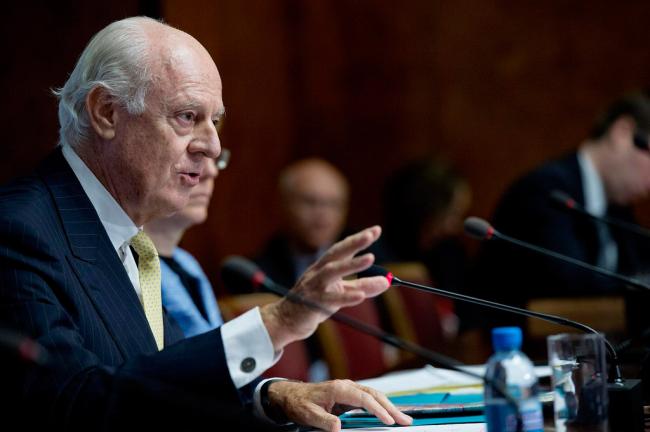12 Feb 2015

“The heart of my mission is to try and facilitate any political process that can lead to a political solution to a conflict which has lasted too long and which has no military solution,” said de Mistura. “I have also, as you can imagine, discussed the issue of the United Nations proposal for a ‘freeze’ to reach a reduction of the violence in the city of Aleppo.”
The Special Envoy said he could not currently elaborate on the details of the content of his discussions, bound as he is to report first to UN Secretary-General Ban Ki-moon and then to the Security Council, in a special meeting on 17 February.
de Mistura has since November been urging support for a local ‘freeze’ to the conflict around Aleppo, so that the growing threat posed by the Islamic State of Iraq and the Levant (ISIL) may be fully confronted and to create an environment whereby humanitarian aid could reach the beleaguered population.
“Our hope is that Aleppo could be a signal of goodwill, a confidence-building measure which could and can facilitate the re-starting of a political process with a clear political horizon,” he said in January, stressing the need for parties to bear in mind the 2012 Geneva Communiqué, while also unconditionally adjusting their aspirations in line with new factors in the reality of the area, such as the presence of ISIL forces.
de Mistura believes Aleppo provides the best example of where the conflict could be halted locally, as fighting between opposition and Government forces had ground to a stalemate amid the steady advance of ISIL militants.
According to the UN, the conflict in Syria has sparked the largest humanitarian crisis since the Second World War, with 7.6 million people displaced and 3.2 million refugees created by the conflict, as well as a further 12.2 million people in need of humanitarian assistance. Well over 150,000 people have died in the conflict, with at least 680,000 injured. Several rounds of UN-mediated peace talks in Geneva among the parties last year ended without a settlement and the Organization has since been reiterating the need to press ahead with political negotiations to achieve the aims of the Geneva Communiqué.
UN Photo/Jean-Marc Ferré